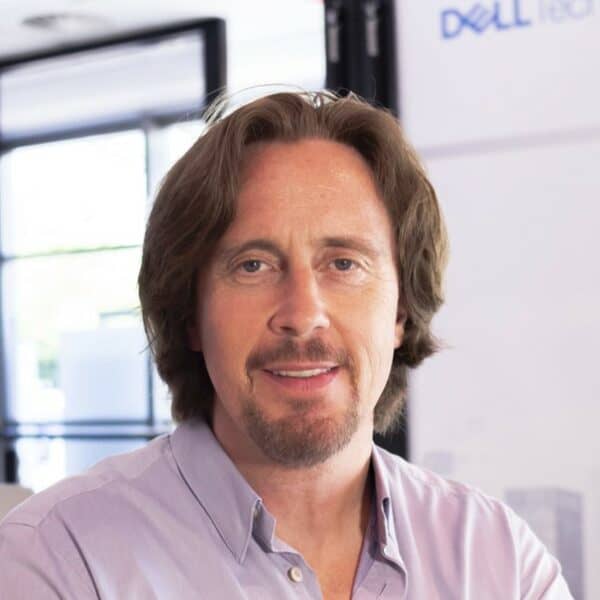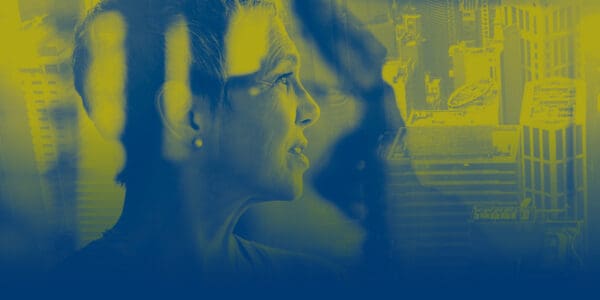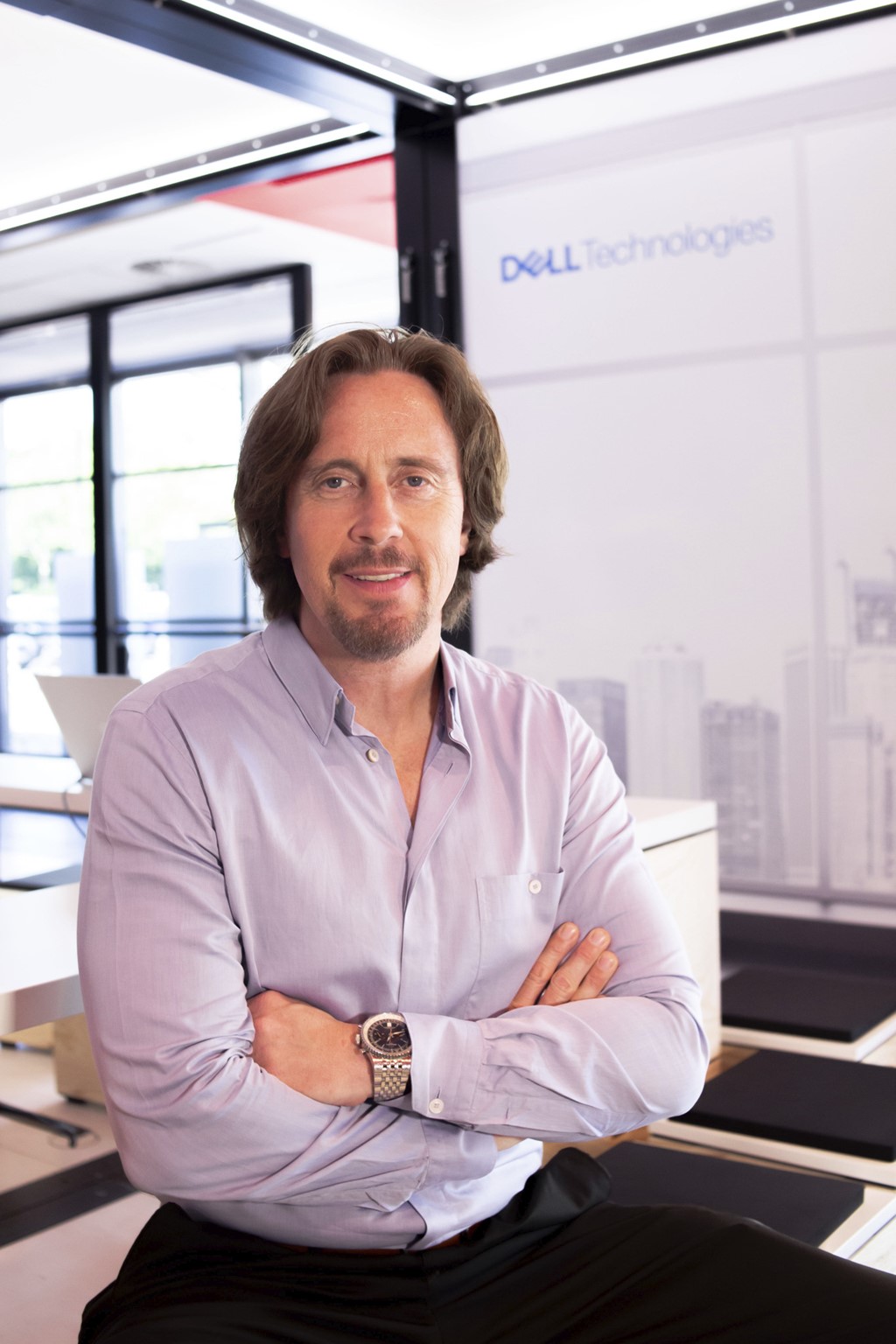
Peter Gentsch is one of the pioneers of digital transformation and data science in Germany: He has been exploring the subject since the 1990s. In an interview with Janice Köser, he offers an insightful look at the digital maturity of German companies.
There are, according to Peter Gentsch, several companies in Germany that have already internalized digitalization and are operating extremely well on this basis, or are offering digital products: For example, DeepL, a translation software, originating from Germany; Celonis, an AI-based company for process analysis, is headquartered in Munich; and companies such as KUKA (Augsburg) or Sew Eurodrive (Bruchsal) make it clear that digitalization also has a significant role to play in Germany.
Nevertheless, there is definitely still plenty of room for improvement here: In the Digital Density Index, which measures the connection between the increased use of digital technologies and higher productivity while quantifying the resulting impact on competitiveness and economic growth, Germany regularly ranks at the bottom. “This is something that worries me a bit,” Gentsch explains. He believes that more should be possible here, but the main problem is probably in people’s heads.
We often hear that the pandemic has brought digitalization a good step forward. Peter Gentsch sees this differently, though. For him, the transformation has not gone far enough, and it is not sustainable: At universities and colleges, for example, all of a sudden attending lectures at a distance had become an option, and Zoom became a daily tool for many. However, many universities – and companies, as well – evidently do not want to maintain these kinds of achievements from the COVID-19 era over the long term: Quite a few universities are now returning to classroom-only lectures, and many companies are again limiting home office options.
“This is primarily a mindset issue,” Gentsch says. The assertion ” This is how we’ve always done it” is currently being heard far too often again, particularly from companies steeped in tradition, he says. Start-ups are much more flexible and have more interest in digital models. The benefit for them is that they are still in experimentation mode and have a discernibly more flexible mistake culture.
Many long-established German companies approach digitalization primarily because they have heard that it is necessary. “Yet digitalization shouldn’t be a constraint. It’s okay to have fun with it.” Gentsch says. Increased digital thinking, however, is not something that can be found in many German companies, he says.
Peter Gentsch has noticed that many entrepreneurs in Germany set up a digitalization program and then assume that this transformation will be completed at some point, just like other projects. Implementing digital models, though, is an ongoing process that does not have an endpoint. What we also need to consider are potential failures, which can then be corrected. Peter Gentsch wishes German entrepreneurs would be more courageous and imaginative here: ” If they were, I think we’d have a lot more opportunities in Germany, too.”
Business processes of large corporations such as Google, Apple, Facebook and Amazon (GAFA for short) are based on Artificial Intelligence (AI). At the heart of their business success is the collection and analysis of data. In the future, though, medium-sized companies will also be able to, and will have to, use this technology effectively for their own benefit: “I feel that this is a fundamental basic technology, not a trend,” Gentsch emphasizes.
“The same is true for the Internet of Everything, which goes beyond the pure IoT (Internet of Things): in the foreseeable future, ecosystems will exist that are fully networked. Plus, there will be the topics of metaverse, blockchain and NFTs. That’s what companies have to deal with. “It is not a matter of blind activism, he said, but instead of acquiring a basic understanding of these topics, partly in order to critically engage with them.
The Future requires flexibility
The Internet will continue to experience rapid change. Peter Gentsch expects the principles of Web 3.0 to prevail: a more de-centralized virtual world where consumers will once again have greater control over their own data. Right now, though, this development is still in its infancy. Nevertheless, it is extremely important to keep an eye on it.
What is also important is that companies find their right niche. Digitalization can open up new opportunities in many other areas apart from Amazon and Facebook. One example is Catuso, a marketplace in the after-sales automotive market. They built a platform where spare parts manufacturers, suppliers, automotive workshops and other companies in this sector can share invoices, processes and receipts in a standardized way using IDA. It then struck those in charge that they had collected quite a lot of data this way, opening up new possibilities – first in terms of forecasting, then for the IoT. Meanwhile, all major car manufacturers are on this platform: BMW, Audi and Porsche give their IoT data to this platform. “Completely new business models can be developed from this, such as tailor-made insurance policies.
If there is one thing we are good at in Germany, it’s Industry 4.0. This country is highly effective at developing and optimizing processes.
Prof. Dr. Peter GenTsch, Entrepreneur and Professor
A new awareness
With its myriad of crises, the world has never been so complex, dynamic and difficult to understand. COVID-19 has shown us that there are strict limits to what can be achieved on a stand-alone basis. One of the biggest challenges today is climate change, and here, too, a collaborative mindset is needed. “The recognition that more can be achieved by sharing data collaboratively is gaining ground,” Gentsch says. He adds that international examples, such as Apple and Microsoft, and national examples, such as Ströer and Otto, have shown that shared knowledge can benefit everyone involved. Gentsch believes that this development is very likely to continue.

Janice Köser
Manager Academy
Staufen.AG


Prof. Dr. Peter Gentsch
Entrepreneur and Professor

More about the topic Digitalization

Executive Leader Program
The accelerated speed of today’s transitions and dynamic market developments are trends that require top-tier managers to acquire new skills. In addition to general management and strategic finesse, the focus is shifting towards establishing competence in the areas of leadership, change management and continuous improvement of organizational structures and employees.
Read more
Before digitalizing processes, make sure they are “lean.”
In many companies, key elements of value creation processes have already been digitalized. Nevertheless, digital transformation itself has only just begun. To remain competitive, companies urgently need to accelerate their digital transformation.
Read more
Study: German Industry 4.0 Index 2022
Staufen AG has compiled the German Industry 4.0 Index every year since 2014. The 2022 index indicates that the German economy is threatening to split down the middle. In 2022, the German Industry 4.0 Index was compiled as part of the study “Companies in Transformation.” For this, we surveyed a total of 363 companies in Germany in the fall of 2021, a good two-thirds of whom are from the mechanical and plant engineering industry, the electrical industry, and the automotive sector.
Read more

